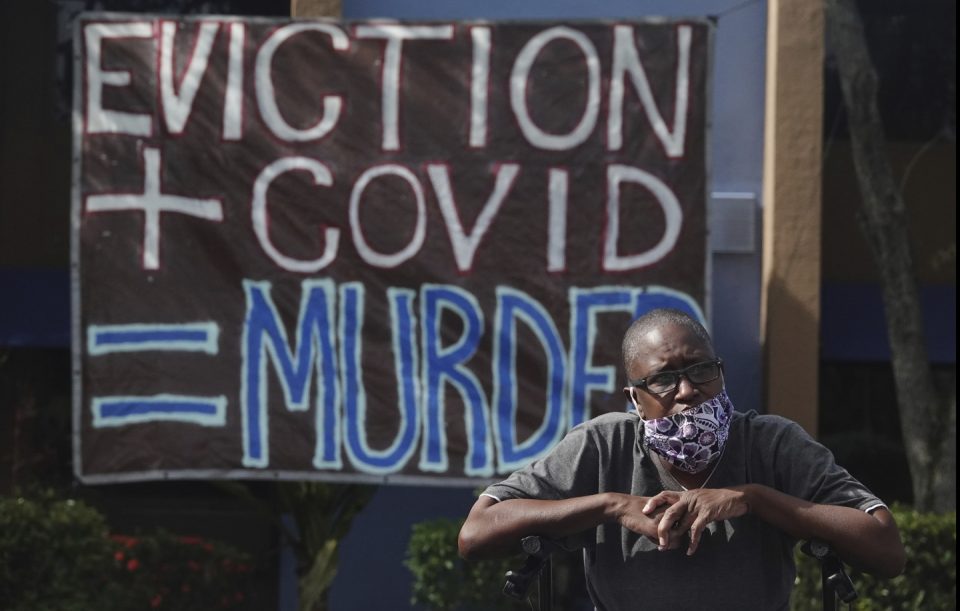KEY POINTS
- In the absence of any sweeping national ban on evictions during the pandemic, many tenants will find themselves at the mercy of local laws.
- The patchwork of protections leads to confusion and illegal evictions, advocates say.
In the lack of any national ban on expulsions during the pandemic, occupants having a hard time paying their lease are at the mercy of a patchwork of narrow and short-lived regional protections.
In Maryland, Missouri, and Ohio, on the other hand, there are no statewide or regional bans on evictions at all.
“Piecemeal policies within a state established renters to have very various outcomes throughout the pandemic by virtue of their POSTAL CODE,” stated Emily Benfer, an expulsion expert and checking out a professor of law at Wake Forest University.
The federal expulsion moratorium in the CARES Act, which was passed in March and banned evictions in residential or commercial properties with federally backed home mortgages or where tenants receive government-assisted housing, expired at the end of July.
The Department of Real Estate and Urban Development says it will extend the moratorium for single-family homes with home mortgages issued by the Federal Real Estate Administration, however that security would not cover nearly as many households like the one in the first stimulus package, which still excluded two-thirds of the country’s tenants.
In the meantime, individuals who can’t pay their rent amidst among the steepest economic downturns in U.S. history are left counting on regional expulsion protections.
That can be difficult.
More than 20 states that had passed a statewide restriction on evictions have allowed the procedures to resume since May, according to Benfer.
More regional defenses can likewise be precarious. Detroit’s eviction moratorium expired on Aug. 15, and a vote at the beginning of the month to prohibit the proceedings in Little Rock, Arkansas, stopped working.

Recently, more than 10 states have extended their eviction moratorium or issued one for the very first time. Yet in many cases, the new defenses are narrower than the initial ones, Benfer stated.
For instance, New York very first prohibited all evictions in the state but when it extended its moratorium till September, it required occupants to be either receiving unemployment or able to reveal a Covid-19-related challenge to be protected.
“The patchwork method to expulsion moratoriums has resulted in misinformation and confusion about occupant rights and commitments,” Benfer stated.
Some property managers make the most of the unpredictability to push tenants out of their houses, stated Daphne McGee, a personnel attorney at Texas Legal Solutions Center. One study of 100 legal help and civil liberties attorneys across the nation at the end of June found that more than 90% of participants had reported unlawful expulsions in their location.
“Occupants frequently do not understand that they have rights when it concerns evictions, even outside of a pandemic,” McGee stated.
Making matters worse is the reality that less than 10% of occupants facing eviction have a legal representative, compared to 90% of property managers.
Landlords often outright overlook regional defenses.
Although Texas resident Jennifer Baird ought to have been secured by the eviction moratorium provided by Austin, which remains in location till the end of September, her landlord transferred to get her out this month. The statewide eviction ban in Texas lapsed in May.
“It’s exceptionally frightening,” Baird, 37, stated. Her earnings as a canine caretaker and realty representative have dried up, and now she’s anxious about living in a shelter and utilizing public bathrooms during the pandemic.
“A minimum of in my house, I can protect myself,” Baird stated. “If I’m out, I do not understand what I’m going to have to deal with that could put my health at danger.”
Baird’s case demonstrates “why it is so crucial for Congress to act in order to keep American renters housed and proprietors able to pay their mortgages,” said Keegan Warren-Clem, handling lawyer at the Texas Legal Provider Center.
Bob Pinnegar, president of the National Apartment Association, said expulsions are a last resort but will be required if Congress does not pass direct rental assistance so that occupants and property managers can remain afloat.
“The rental housing market alone can’t bear the entire financial weight of the pandemic,” he said.
Without such help, approximately 40 million Americans might lose their houses in this recession, four times the quantity seen throughout the Great Economic crisis. More than 1 in 5 occupants lagged on there in July. Some states will be specifically difficult hit: Nearly 60% of tenants in West Virginia are at danger of eviction.
“Eventually, the moratoriums are rapidly expiring prior to the robust federal interventions are in place to secure adults and kids from the harm,” Benfer said.

